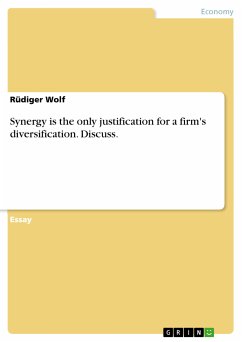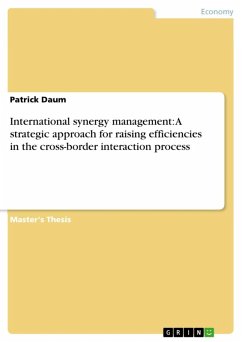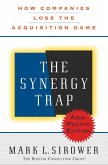Essay from the year 2002 in the subject Business economics - Business Management, Corporate Governance, grade: B, Royal Holloway, University of London (School of Management), course: Strategic Management, language: English, abstract: Synergy is commonly regarded as a justification for a firm's diversification. But, is it the only one? Or to continue that thought, is it a justification for a firm's diversification at all? My intention in this essay is to investigate the role of synergies in the decission-making process that leads to the diversification of a company. To find an answer to that problem, we will first have to take a look at what the terms "synergy" and "diversification" actually mean. After that, I will go on to discuss what possible other reasons there might be for a firm to diversify. To find out about their role in that process, it is necessary to first have a look on what synergies are and how they can be created. Obviously it is possible to create synergies by diversification. Sharon M. Oster writes: "The strategic management literature emphasizes the role of diversification in creating synergies. Two business units have synergies if their union allows for opportunities not available to either seperately."0 So, this definition of synergy says that new opportunities emerge from making use of shared resources. [...]
Dieser Download kann aus rechtlichen Gründen nur mit Rechnungsadresse in A, B, BG, CY, CZ, D, DK, EW, E, FIN, F, GR, HR, H, IRL, I, LT, L, LR, M, NL, PL, P, R, S, SLO, SK ausgeliefert werden.









